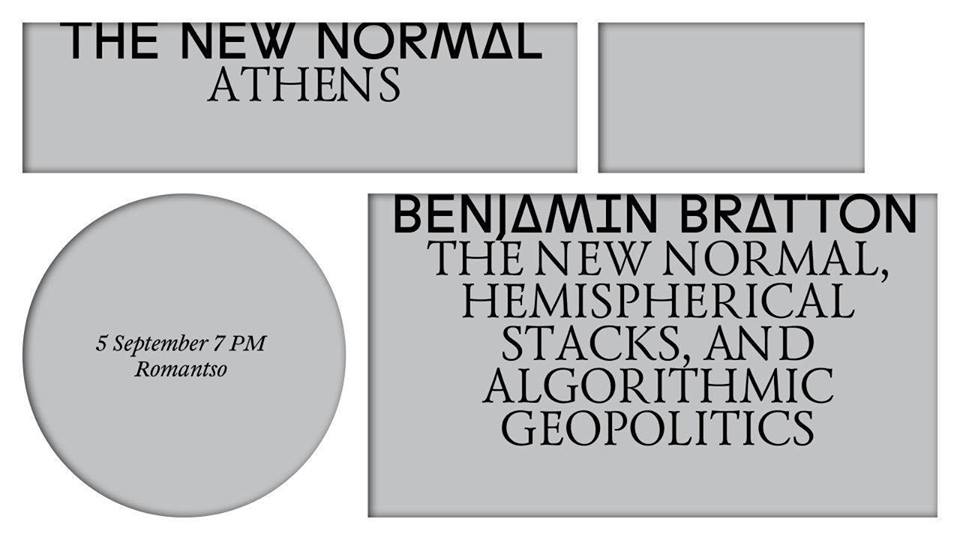“The Whole Age of Computer Has Made It Where Nobody Knows Exactly What’s Going On”:
or, The New Normal, Hemispherical Stacks, and Algorithmic Geopolitics
Whither planetary-scale computation in this “new normal”? The rise of ethno-nationalist populism is a global phenomenon with global causes. Yet, in each case, locals either blame or congratulate themselves for their unique failures or accomplishments. From Manila to Milwaukee, we see the same voting patterns of urban, highly educated cosmopolitans versus rural, less educated monoculturalists wanting only to preserve their own national culture. Although globalisation delinked sovereignty from geography in many capacities, we are still dealing with the vestiges of 18th-century phenomena at a time when city-states seem decisively detached from their national hosts. For those from ‘District 13’ in our real-life Hunger Games, the city may be seen as a source of arbitrary power, and in this way, urbanisation itself becomes a focus of populist backlash.
We must reconsider the role of design at the moment when cosmopolitics seems functionally indistinguishable from metropolitics, itself defined by the consolidation of technical systems. We will do through the lense of the The New Normal post-graduate programme at the Strelka Institute in Moscow, a speculative urbanism think-tank and a platform for the invention and articulation of a new discourse and new models for design practices.
In this talk, writer Benjamin H. Bratton will provide a review of developments since the publication of his book The Stack: Software and Sovereignty planetary computation beyond platform economics, AI at urban scale, the liquid boundaries of public data and private data, landfill mining and Earth systems modeling, the futile complicity of utopian/dystopian narratives, urban culture after Peak Pitchfork, multipolar hemispherical stacks and their Potemkin ontologies, multiscalar human exclusion zones, urban simulation models, synthetic voice, Kratt laws, fuzzy data subjects, and what counts, should be counted and be accountable as we slouch toward the post-Anthropocene.
Benjamin Bratton‘s work spans Philosophy, Art, Design and Computer Science. He is Professor of Visual Arts and Director of the Center for Design and Geopolitics at the University of California, San Diego. He is Program Director of the Strelka Institute of Media, Architecture and Design in Moscow. He is also a Professor of Digital Design at The European Graduate School and Visiting Faculty at SCI_Arc (The Southern California Institute of Architecture).
When September 5
Where Romantso, 3-5 Anaxagora str., Athens
–
Την Τετάρτη 5 Σεπτεμβρίου στις 19.00 θα πραγματοποιηθεί ομιλία με τον Benjamin H. Bratton στα πλαίσια του προγράμματος “The New Normal” του Ινστιτούτου Strelka.
Το πρόγραμμα επικεντρώνεται στην έρευνα και το σχεδιασμό της πόλης ενώ ταυτόχρονα διερευνά τις ευκαιρίες που δημιουργούν οι αναδυόμενες τεχνολογίες για διεπιστημονικές πρακτικές σχεδιασμού, και απευθύνεται σε νέους ταλαντούχους επαγγελματίες από τους κλάδους της αρχιτεκτονικής, τις αστικές μελέτες, τα ψηφιακά μέσα, το σχεδιασμό αλληλεπίδρασης, τις μελέτες λογισμικού, τις επιστήμες κοινωνικών επιστημών κ.ά.
Το Ινστιτούτο Strelka είναι μια πλατφόρμα που προωθεί τη δημιουργικότητα, την εφευρετικότητα και τη συνεργατική πολιτιστική παραγωγή σε αρχιτεκτονική, design και media. Η δράση του Ινστιτούτου έχει διερευνήσει το AI σε αστική κλίμακα, τις κερδοσκοπικές μεγάλου μεγέθους κατασκευές, τα μοντέλα προσομοίωσης, την αποκέντρωση της πλατφόρμας, τη συνθετική ανίχνευση και πολλά άλλα.
Το έργο του Benjamin H. Bratton καλύπτει τη φιλοσοφία, την τέχνη, το design και την επιστήμη των υπολογιστών. Είναι Καθηγητής Εικαστικών Τεχνών και Διευθυντής του Κέντρου Σχεδιασμού και Γεωπολιτικής στο Πανεπιστήμιο της Καλιφόρνιας του Σαν Ντιέγκο. Είναι Διευθυντής Προγράμματος του Ινστιτούτου Μέσων Ενημέρωσης, Αρχιτεκτονικής και Σχεδιασμού Strelka στη Μόσχα. Είναι επίσης Καθηγητής Ψηφιακού Σχεδιασμού στην Ευρωπαϊκή Σχολή Μεταπτυχιακών Σπουδών και Επισκέπτης στο Ινστιτούτο Αρχιτεκτονικής της Νότιας Καλιφόρνιας.
Τοποθεσία ΡΟΜΑΝΤΣΟ
Ώρα Προσέλευσης 19.00
Είσοδος Ελεύθερη
READ ALSO: Critic - post.critic, the trajectories of Zaha Hadid | Research thesis by Apostolia Michalou
